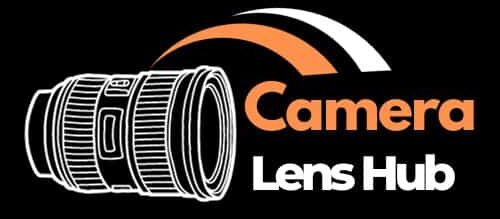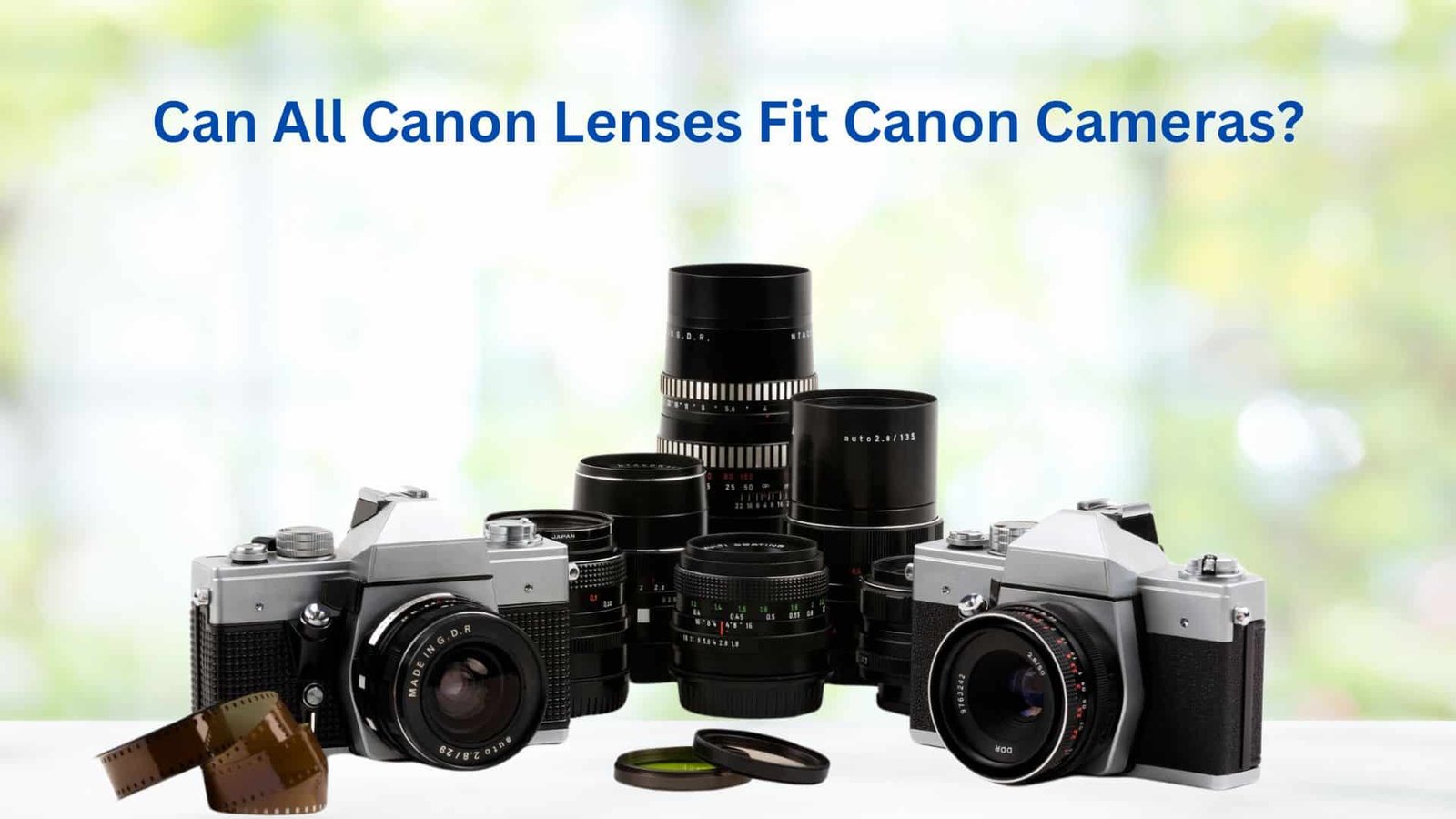Canon, a renowned name in the world of photography, has built an extensive ecosystem of lenses and cameras. Canon’s extensive lineup of lenses and cameras offers photographers a diverse range of options to capture stunning images. Understanding the compatibility between Canon lenses and cameras is crucial for achieving optimal performance and unlocking the full potential of your photography gear. With various lens mounts such as EF, EF-S, EF-M, and RF, Canon provides photographers with versatility and innovation. However, the question of can all Canon lenses fit Canon cameras often arises, leading to confusion among users.
In this blog post, we aim to demystify Canon lens compatibility, exploring the factors that influence compatibility, the role of different lens mounts, and practical tips for maximizing compatibility. Let’s delve into the intricate world of Canon lenses and cameras to unravel the complexities of lens compatibility and empower photographers to make informed decisions.
Canon Lens Mounts and Camera Compatibility
Canon has introduced four main lens mounts throughout its history: EF, EF-S, EF-M, and RF. Each mount has been designed with specific features and intended camera compatibility in mind. The EF mount, introduced in 1987, was designed for Canon’s full-frame and APS-C DSLR cameras. It features a large diameter and a short flange focal distance, allowing for the development of high-quality lenses with a wide range of focal lengths and apertures. The EF-S mount, introduced in 2003, was designed specifically for Canon’s APS-C DSLR cameras. It features a smaller image circle compared to the EF mount, allowing for the development of more compact and affordable lenses.
The EF-M mount, introduced in 2012, was designed for Canon’s mirrorless cameras with APS-C sensors. It features a smaller diameter and a shorter flange focal distance compared to the EF mount, enabling the creation of lightweight and portable lenses. The RF mount, introduced in 2018, is Canon’s latest lens mount designed for its full-frame mirrorless cameras. It features a larger diameter and a shorter flange focal distance compared to the EF mount, allowing for the development of high-performance lenses with improved image quality and reduced size.
Factors Influencing Canon Lens Compatibility
The factors influencing Canon lens compatibility are primarily determined by the specific lens mount and the camera’s sensor size. Different Canon lenses are designed for specific camera models and sensor types, such as full-frame or APS-C sensors. The compatibility of Canon lenses with Canon cameras is influenced by the following key factors:
1: Lens Mount:
- Canon offers various lens mounts, including EF, EF-S, EF-M, and RF. Each mount is designed for specific camera models and sensor sizes, affecting the compatibility of lenses with different Canon cameras.
2: Sensor Size:
- Full-frame cameras and APS-C cameras have different sensor sizes, which impact the field of view and image quality. Lenses designed for specific sensor sizes may not be fully compatible with cameras of different sensor types.
3: Electronic Communication:
- Canon lenses rely on electronic communication with the camera to enable features like autofocus, image stabilization, and exposure control. Compatibility issues may arise if the lens and camera are not electronically compatible.
4: Crop Factor:
- When using lenses designed for APS-C sensors on full-frame cameras, a crop factor applies, affecting the effective focal length and field of view. Understanding the implications of the crop factor is essential for selecting the right lenses for specific camera models.
Understanding Canon Lens Mounts in Detail
- EF Mount:
- Designed for full-frame and APS-C DSLR cameras
- Features a large diameter and a short flange focal distance
- Offers a wide range of focal lengths and apertures
- Compatible with all Canon DSLR cameras, both full-frame and APS-C
- EF-S Mount:
- Designed specifically for APS-C DSLR cameras
- Features a smaller image circle compared to the EF mount
- Allows for the development of more compact and affordable lenses
- Compatible only with Canon APS-C DSLR cameras
- EF-M Mount:
- Designed for Canon’s mirrorless cameras with APS-C sensors
- Features a smaller diameter and a shorter flange focal distance compared to the EF mount
- Enables the creation of lightweight and portable lenses
- Compatible only with Canon EOS M series mirrorless cameras
- RF Mount:
- Designed for Canon’s full-frame mirrorless cameras
- Features a larger diameter and a shorter flange focal distance compared to the EF mount
- Allows for the development of high-performance lenses with improved image quality and reduced size
- Compatible only with Canon EOS R series full-frame mirrorless cameras
Can All Canon Lenses Fit Canon Cameras?
The short answer is NO, not all Canon lenses can fit all Canon cameras. The compatibility of Canon lenses with Canon cameras depends on the specific lens mount and the camera’s sensor size.EF lenses can be used on all Canon DSLR cameras, both full-frame and APS-C, as well as on Canon’s full-frame mirrorless cameras with the use of an adapter. EF-S lenses can only be used on Canon APS-C DSLR cameras, while EF-M lenses are compatible only with Canon’s EOS M series mirrorless cameras. RF lenses are designed specifically for Canon’s EOS R series full-frame mirrorless cameras. It’s important to note that while adapters can be used to mount lenses from different systems onto Canon cameras, there may be limitations in functionality, such as reduced autofocus performance or the inability to use certain features like image stabilization.
Exploring Lens Adaptation and Third-Party Lenses
Adapters play a crucial role in expanding lens compatibility options for Canon cameras. Canon offers a range of adapters that allow users to mount EF and EF-S lenses onto their EOS R series mirrorless cameras. These adapters maintain full electronic communication between the lens and the camera, ensuring seamless functionality. In addition to Canon’s lenses, photographers can also explore third-party lenses from manufacturers like Sigma, Tamron, and Tokina. These lenses are often more affordable and offer unique focal lengths and features. However, it’s essential to research the compatibility of third-party lenses with specific Canon camera models to ensure optimal performance and avoid any issues.
Ensuring Seamless Communication Between Lens and Camera
To maintain optimal compatibility between Canon lenses and cameras, it’s crucial to keep both the lens and camera firmware up to date. Canon lenses rely on electronic communication with the camera to enable features like autofocus, image stabilization, and exposure control. To maintain this communication, it’s essential to keep both the lens and camera firmware up to date. Regularly updating firmware can address compatibility issues and improve overall functionality. Additionally, cleaning the lens contacts and the camera’s gold pins can help resolve communication errors. If issues persist, trying a different lens or camera can help identify which component is faulty. Furthermore, using adapters can expand lens compatibility options, but it’s important to ensure the adapter is compatible with both the lens and camera. By following these tips and prioritizing compatibility, photographers can maximize the performance and longevity of their Canon lenses and cameras.
Tips for Maximizing Lens Compatibility
Here are some tips for maximizing lens compatibility when using Canon lenses with Canon cameras:
1: Match the lens mount to the camera body: Ensure that the lens mount (EF, EF-S, EF-M, or RF) is compatible with your specific Canon camera model. Using the correct lens mount is crucial for achieving full compatibility and functionality.
2: Consider sensor size compatibility: When selecting lenses, keep in mind the sensor size of your Canon camera (full-frame or APS-C). EF-S lenses designed for APS-C cameras, while EF and RF lenses can be used on both full-frame and APS-C cameras.
3: Use adapters for expanded compatibility: Canon offers adapters that allow you to mount EF and EF-S lenses on EOS R series mirrorless cameras. These adapters maintain full electronic communication between the lens and the camera, ensuring seamless functionality.
4: Keep firmware up to date: Regularly update the firmware of both your Canon lenses and cameras to ensure optimal compatibility and performance. Canon releases firmware updates that address compatibility issues and improve overall functionality.
5: Refer to compatibility charts: When selecting lenses for your specific Canon camera model, refer to compatibility charts provided by Canon to ensure seamless integration and avoid any potential issues.
6: Clean lens contacts regularly: Maintain the cleanliness of the lens contacts to ensure smooth communication between the lens and the camera. Use a clean, dry cloth to gently wipe the contacts if needed.
7: Handle lenses with care: Avoid forcefully attaching lenses to prevent damage to the camera or lens mount. Gently align the lens with the mount and twist it into place.
Conclusion
In conclusion, while not all Canon lenses can fit all Canon cameras due to the different lens mounts and sensor sizes, Canon has made significant efforts to maintain compatibility within its ecosystem. By understanding the intricacies of Canon lens mounts and the factors that influence compatibility, photographers can make informed decisions when selecting lenses for their Canon cameras. The introduction of adapters and the compatibility of third-party lenses have further expanded the options available to Canon users. However, it’s essential to prioritize compatibility and maintain both lenses and cameras to ensure optimal performance and longevity. As Canon continues to innovate and introduce new lens mounts and camera models, photographers must stay informed and adapt to the changing landscape of lens compatibility. By following best practices and leveraging the resources available, photographers can fully harness the potential of Canon’s extensive lens lineup and capture stunning images with their Canon cameras.
People Also Ask
Q1: Are all Canon lenses compatible with Canon cameras?
- No, not all Canon lenses are compatible with all Canon cameras. Compatibility depends on the specific lens mount and the camera’s sensor size. Different Canon lenses designed for specific camera models and sensor types, such as full-frame or APS-C sensors.
Q2: Can EF-S lenses be used on full-frame Canon cameras?
- No, EF-S lenses designed specifically for APS-C DSLR cameras and not compatible with full-frame Canon cameras. Attempting to use EF-S lenses on full-frame cameras may result in limitations and compatibility issues.
Q3: What is the crop factor when using APS-C lenses on full-frame EOS R cameras?
- When using dedicated APS-C lenses on full-frame EOS R cameras, a 1.6 crop factor applies. This crop factor affects the field of view and may result in a narrower angle of view compared to using full-frame lenses on the same camera.
Q4: Can Canon EF lenses be used on Canon EOS R series cameras?
- Yes, Canon EF lenses are used on Canon EOS R series cameras with the use of an EF-RF mount adapter. This adapter allows for the mounting of EF lenses on EOS R cameras, expanding the range of compatible lenses for EOS R users.

